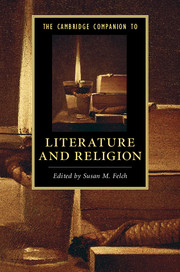Introduction
Published online by Cambridge University Press: 05 September 2016
Summary
In the first half of the twentieth century, French philosopher Simone Weil wrote: “Workers need poetry more than bread. They need that their life should be a poem. They need some light from eternity. Religion alone is able to be the source of such poetry.”
Weil was not naïve, and she penned these words with open eyes. She had seen poverty, injustice, and impending war. She was not given to conventional religious or aesthetic sentiments. Yet against her own inclinations, she had found herself drawn to God and to spiritual practices – indeed to a reorientation of her life – although she never formally became a member of a religious community. Her essays, notebooks, and letters remain a testament to her desire for light and her efforts to become attentive to God in the lives of other people, in liturgical and everyday rituals, and in the beauty of an often-marred world.
The Cambridge Companion to Literature and Religion begins by acknowledging, with Weil, that human beings need poetry and they need religion, and these two needs are intimately conjoined. It offers a companion for those who want to read literature and religion within the same intellectual and affective frame. It is not a handbook or guide or survey; it makes no pretense of offering a comprehensive map to either of those capacious fields “literature” and “religion,” nor of delimiting their boundaries. Rather, as a companion, it invites us to consider how acts of reading that take both literature and religion seriously may illuminate our encounter with texts, authors, other readers, and the world itself.
The tasks assigned to the writers of each chapter were straightforward, although they were not easy: reflect on your assigned topic, treat with equal rigor literary and religious concerns, and explicate one or more literary works. In other words, each author was asked to undertake an act of reading that incorporated at least one literary text and one religious tradition, however broadly or narrowly “literary” and “religious” might be construed.
- Type
- Chapter
- Information
- The Cambridge Companion to Literature and Religion , pp. 1 - 18Publisher: Cambridge University PressPrint publication year: 2016
- 1
- Cited by

